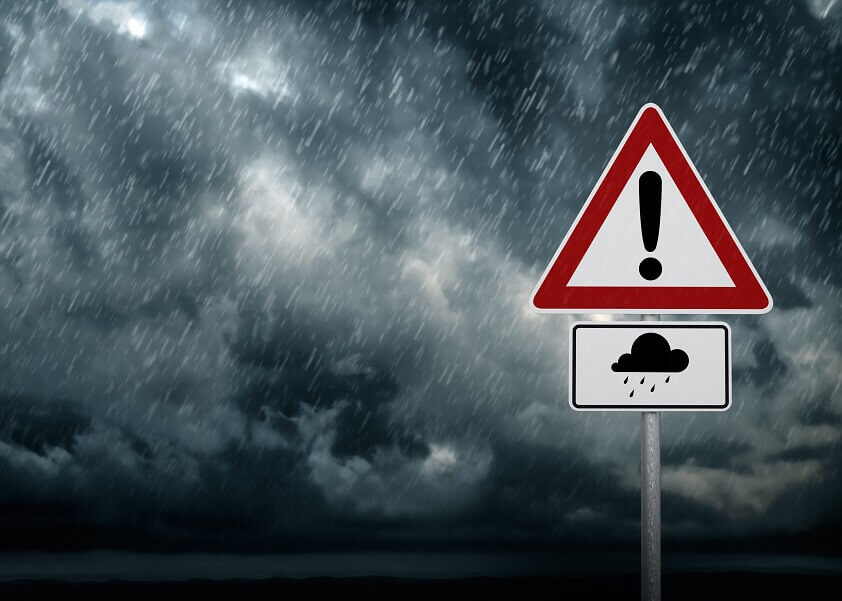It really doesn’t matter where in the U.S. you live. Disaster preparedness is something we should all be doing as winter gets closer. Sure, not everyone faces blizzards or hurricanes or flash flooding or tornadoes or earthquakes or volcanoes or tsunamis (and thankfully, no part of the U.S. faces all of these, yikes!). But…things can go wrong, very wrong, anywhere.
In my own part of the country where extreme weather is rare, we still get earthquakes, windstorms, deep freezes, and—two years ago—a mudslide that killed 43 people and wiped out an entire neighborhood.
The fact is, disasters can happen anywhere, any time. Freak windstorms, downed power lines, outbreaks of disease, heat waves…many disasters don’t know geographical boundaries. They don’t care if you live on the San Andreas fault or in Tornado Alley.
So…be ready in case disaster does strike!
All of that doom and gloom speak there, it has a purpose: to encourage you to get some preparation done, just in case—because being ready for the worst is just one more part of keeping your home and family safe and secure.
If you think this isn’t necessary, consider this question: If all of a sudden, today, you had no electricity or running water, no phone, and no stores you could go to for supplies, how long could you and your family cope?
Make sure your family can cope for several days at least, by being prepared for a disaster. It’s not hard, just a little time-consuming, and resources are easy to find. The Internet has plenty of emergency checklists, and I encourage you to find one relevant to your area, print it out, and check off the items as you get ready for everything to go south.
A basic disaster preparedness checklist to get you started
To at least get you started, I’ve pulled together one that’s at least a little bit applicable to everybody throughout all the different regions, so maybe start here. And remember, better safe than sorry!
- A heat source: If you didn’t have electricity or natural gas, how would you keep your family warm? And whatever that heat source is, make sure you have extra fuel, whether that’s propane for a heater or firewood for a wood stove.
- A way to cook: This could be on your camping stove (outside!) or on a grill, or even on your woodstove. As with the heat source, make sure you have extra fuel, such as charcoal, propane or wood.
- A hand-cranked or solar-powered radio
- Matches, batteries, candles, flashlights: Stock up on all of these and make sure you keep spare batteries near the flashlights they’re for. Also make sure a couple of candles and flashlights are stored where they can be easy to reach and find in the dark.
- Prescription medicines, first aid supplies, and cold remedies and helpers such as cough syrup: If someone in the family has prescription medicine, make sure to have extra on hand.
- Food and water: This is a big one. Food needs to be either dried or canned, not frozen (since your freezer will stop working if the power goes out). It also needs to be easy to prepare. Keep enough on hand to last you a few days, not just one meal. Water is imperative. Store plenty for your family. Rotate through the food and water as needed, say every six months or so.
- Pet food: Guess who else will be hungry? Make sure you stock up for them too.
- Toilet paper: Seriously.
- Gas: Keep your gas tank above half a tank at all times, and have extra gas on hand, safely stored in a gas can.
- Generator and gas: Crank it up each fall and make sure it’s working before you need it.
- Cash: You never know what might happen, but you want to be able to buy supplies even if the electricity is out and your debit card can’t be scanned.
Two surprising bonus tips
1) In addition to making sure your home is well supplied, also make sure your car is stocked for an emergency, and here’s a tip I just saw that makes so much sense: Keep your emergency kit and any extra blanket or clothing in the backseat! I had my kids put their emergency supplies in the trunk, but that doesn’t mean those supplies will be accessible. Moving those supplies to the back seat makes so much sense!
2) Stay healthy! Take good care of yourself, get plenty of sleep, eat well, and practice good hygiene to avoid getting the flu. Because if disaster strikes and you’re not healthy or strong enough to deal with the adversity, your emergency supplies won’t be much help!
Here’s hoping for a safe and sound winter for us all…but that we’re all ready for anything, just in case.

